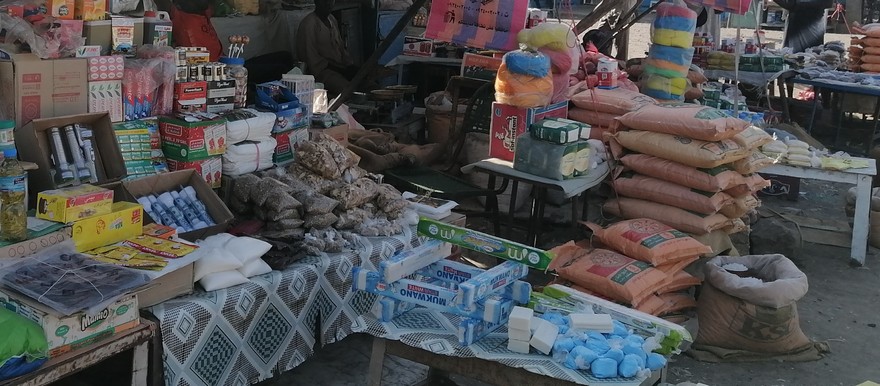Citizens in Upper Nile State’s capital Malakal have complained of the sharp rise in the prices of consumer goods in the market, amid deepening economic woes in the country.
Many families, especially civil servants and soldiers, haven’t received their salaries for several months as the country battles weak oil prices. The South Sudanese pound is depreciating rapidly.
Speaking to Radio Tamazuj on Friday, many residents of Malakal town expressed their concern about the poor economic condition in which they live, as some revealed that prices in the market are increasing dramatically every day.
Teresa Castelo, a resident of Malakal town, complained that the price of a kilogram of beef has increased from 1,200 SSP to 1,500 SSP, saying the prices of cooking oil and flour have risen dramatically in the market.
"I am running a small restaurant here in Malakal and we are facing a lot of challenges because of soaring prices. Whenever we ask about the reason, wholesale traders say the authorities are imposing a lot of taxes on them," she explained.
Teresa urged the new state government to reduce multiple taxes to address the rising prices of communities. She also expressed hope that the new government will rebuild Malakal town, which is emerging from war.
Another resident of Malakal, Martin Akoch, said the prices of food commodities have gone up to a level that people are no longer able to afford them.
"Our situation is not good at all because the prices of commodities like sugar, bread and other food items have gone up. There are complaints that there are a lot of taxes being imposed on traders along the road. As a government employee, it is very hard for me to meet the needs of my family," he said.
"It is good that the government has been formed. We call on the state government to start addressing the challenges facing us here in Malakal," he added.
Abdelgadir Abakar Saleh, a resident of Malakal, said: "The rising prices of commodities is due to multiple taxes on the road. When a boat moves from Juba to Malakal, there are several points where tax are collected from the traders. So when the traders arrive in Malakal they start selling their goods at expressive prices."
Thon Yel Thon, a chairperson for the Upper Nile State Chamber of Commerce, attributed the problem to increasing prices of the US dollar at the market, pointing out that the local currency continues to depreciate against foreign currencies.
"Malakal relies on goods coming from Sudan through smuggling and goods coming from Juba. The price of 100 US dollar now is 62,000 SSP, so we appeal to our government to find a solution to the problem of the US dollar," Thon Yel said. "Also, there are multiple checkpoints where boats pay a lot of money and this leads to delays in bringing goods to Malakal."
Thon said that ordinary citizens are immensely suffering as the economic situation continues to deteriorate in the area.
For his part, Ayong Tiop, a senior administrative officer in Malakal Municipality, said they have a plan to exempt traders who import food items from paying taxes in a bid to cushion residents from skyrocketing prices of commodities.
"Food items like sorghum, sugar and other items can be exempted from paying taxes by 50 percent. So this is our plan as Malakal municipality. And It is good now that the government has been formed and this plan will be given to the mayor," he said.
When asked about citizens’ complaints about multiples taxes being imposed on traders by the authorities, Ayom said, "As a municipality, we don’t issue any order unless traders agree on it. So whatever we collect from the traders it was agreed upon. Yes, I can confirm that there are multiple checkpoints, but it is the responsibility of the state government."




